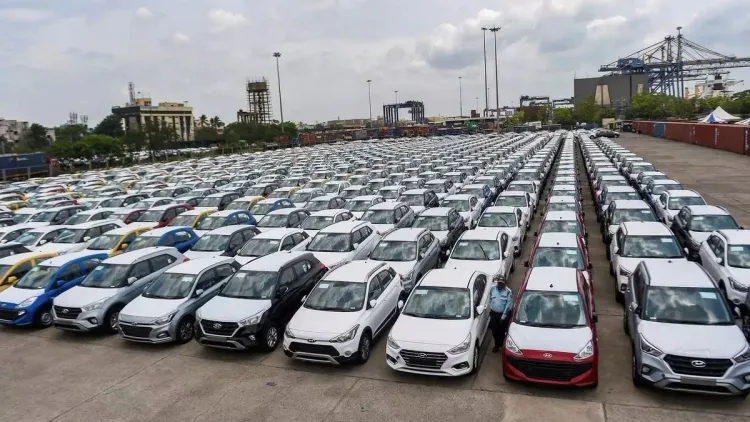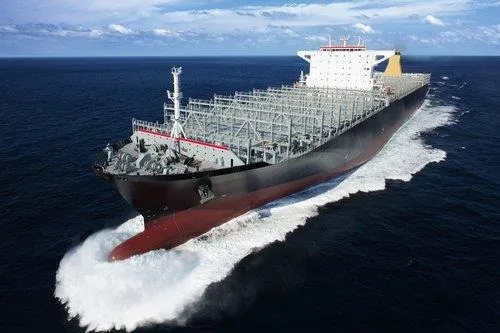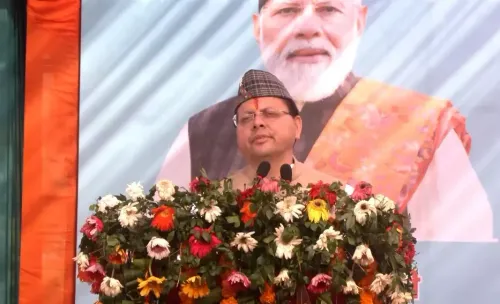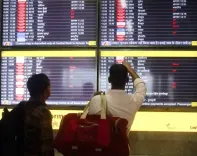Impact of US Tariff Hike on India's Auto Industry Appears Minimal

Synopsis
Key Takeaways
- Indian auto manufacturers are largely insulated from US tariffs.
- Royal Enfield may face export challenges due to US market reliance.
- US-India trade negotiations aim for $500 billion by 2030.
- Direct impacts of tariffs are manageable; indirect effects worry analysts.
- New trade agreements are set to enhance bilateral cooperation.
New Delhi, Feb 14 (NationPress) Indian automotive manufacturers are unlikely to experience significant repercussions from the reciprocal tariffs proposed by US President Donald Trump, as these firms primarily cater to the rapidly expanding domestic market, according to industry analysts.
Original Equipment Manufacturers (OEMs) are largely shielded due to substantial localization in operations and minimal exports to the US, stated Puneet Gupta, a director at S&P Global Mobility - India and Asean.
He further explained, “India is a favored partner for the US, serving as the only viable alternative to China for American automakers seeking to procure auto components.”
Royal Enfield could be a notable exception, as the motorcycle division of Eicher Motors Ltd. relies heavily on the US market for its 650 CC motorcycle exports. Additionally, certain auto component manufacturers may feel the sting of increased tariffs.
Recently, Trump directed his administration to evaluate the implementation of reciprocal tariffs on various trading partners, raising the possibility of a broader campaign against a global trade system he perceives as biased against the US. He commented, “I’ve decided, for the sake of fairness, to impose reciprocal tariffs, meaning that whatever countries charge the United States, I will charge them back.”
Trump also specifically mentioned India regarding its elevated tariff barriers.
A report from Morgan Stanley indicates that while the direct effects of reciprocal tariff increases by the US will likely be manageable, the indirect consequences, particularly the uncertainty affecting business confidence, are more concerning. Nonetheless, domestic policies are expected to remain conducive to growth, with additional measures implemented if any downside risks materialize.
In a joint statement, Prime Minister Narendra Modi and President Trump expressed their commitment to enhancing trade and investment to foster prosperity for their citizens, fortify their nations, spur innovation in their economies, and create more resilient supply chains. They established an ambitious goal for bilateral trade, termed “Mission 500,” aiming to more than double total bilateral trade to $500 billion by 2030.
Acknowledging that achieving this level of ambition would necessitate new, equitable trade terms, both leaders announced plans to negotiate the initial segment of a mutually advantageous, multi-sector Bilateral Trade Agreement (BTA) by fall 2025. They have committed to appointing senior representatives to facilitate these negotiations, ensuring that the trade relationship aligns with the aspirations of the COMPACT. To advance this innovative BTA, the US and India will adopt an integrated strategy to bolster and deepen bilateral trade across both goods and services sectors, focusing on enhancing market access, lowering tariff and non-tariff barriers, and fortifying supply chain integration.
Both nations also pledged to collaborate on increasing bilateral trade by enhancing US exports of industrial goods to India and boosting Indian exports of labor-intensive manufactured products to the United States. Furthermore, they will work together to augment trade in agricultural products.
Ultimately, the leaders dedicated themselves to fostering opportunities for US and Indian businesses to invest in high-value industries within each other's countries. In this context, they acknowledged ongoing investments by Indian companies totaling approximately $7.35 billion, including initiatives by Hindalco’s Novelis in finished aluminum goods in Alabama and Kentucky; JSW in steel manufacturing in Texas and Ohio; Epsilon Advanced Materials in critical battery materials production in North Carolina; and Jubilant Pharma in injectables production in Washington. These investments collectively support over 3,000 high-quality jobs for local families.









